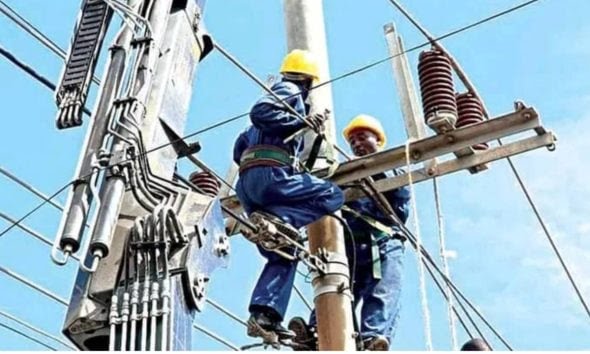
Electricity
We regard Electricity Act 2023 as Tinubu’s palliative to Nigerians – Ajayi-Kadir, MAN DG
The Manufacturers Association of Nigeria, MAN, said they regard President Bola Tinubu’s signing the Electricity Act 2023 as a palliative to its members and Nigerians.
They, however, said that is if the Act is well implemented aa well as the removal of fuel subsidy.
A statement on Thursday, signed by Ms Chisom Oguezuonu, Executive Officer, Corporate Service Division of MAN, Mr Segun Ajayi-Kadir, Director General of MAN, noted that the Nigerian power sector had encountered various turbulence in its electricity value chain over the past decades.
He attributed this to poor policy enforcement, over-regulation, instability of gas supply and bottlenecks in its transmission network.
He said those problems culminated in erratic electricity supply, frequent power outages and persistent national grid collapses, thereby stunting the economy’s growth.
He said Nigeria’s inadequate electricity supply hindered the profitability of manufacturers with an annual economic loss valued at about N10.1 trillion or two per cent share of the country’s Gross Domestic Product (GDP).
According to him, the total amount spent by manufacturers on alternative energy surged from N77.21 billion in 2021 to N144.47 billion in 2022.
However, he stated that the newly signed Electricity Act 2023 could lead to a drastic fall in the cost of alternative energy and address numerous constraints within the sector.
“MAN has consistently pushed for the need to charge cost-reflective electricity tariffs to avoid extortion of our members.
“Fortunately, it is of great delight that this new Act fits like a glove as it will help actualise a cost-reflective tariff, considering the healthy price competition it will bring between the states and private investors.
“The country’s epileptic power supply is one of the prominent reasons for the relocation of some of our members.
“Provided the new Act adequately addresses the challenges in the power sector, we are quite optimistic that such development will encourage the inflow of manufacturing Foreign Direct Investment (FDI), boost the sector performance and increase the sectoral contribution to the economy,” he said.
The MAN DG added that the newly signed Act would increase Internally Generated Revenue (IGR), investment in renewable energy, improve infrastructure, stable power supply and less tax burden on manufacturers.
He also said empowering private manufacturing companies to generate electricity would unleash massive investment in backward integration activities, a significant enabler of energy security within the sector.
Ajayi-Kadir, however, urged the government to consider some of the association’s recommendations to avoid truncating the benefits of the Electricity Act 2023.
“Following the removal of subsidy, this is another reflection of the boldness and commitment of the new administration towards the diversification and decentralisation of the power sector.
“However, we must tighten the security infrastructure as no investor wants to do business in a terrorised economy.
“Government has to render legal, financial and technical support to state governments yet to establish electricity market laws, while state governments should partner with existing agencies and operators in the power sector. The costs of building new power distribution networks can render the investment less lucrative.
“The success of the Act largely rests on its effective implementation; therefore, the new President should appoint a committed and incorruptible Minister of Power that has broad experience of the operations and politicking within the power sector,” he said.
